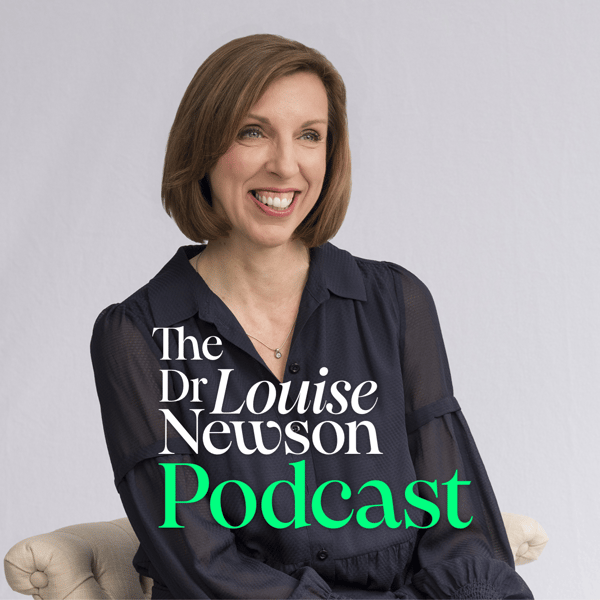122 - Myth-busting clots with Maggie Honey
The Dr Louise Newson Podcast
Dr Louise Newson
4.8 • 798 Ratings
🗓️ 19 October 2021
⏱️ 30 minutes
🧾️ Download transcript
Summary
Transcript
Click on a timestamp to play from that location
| 0:00.0 | Hello, I'm Dr. Louise Newsome and welcome to my podcast. I'm a GP and menopause specialist and I run the Newsome Health Menopause and Wellbeing Centre here in Stratford-Bron-Avon. I'm also the founder of the Menopause charity and the Menopause support app called Balance. |
| 0:29.9 | On the podcast, I will be joined each week by an exciting guest to help provide evidence-based |
| 0:36.5 | information and advice about both the perimenopause and the |
| 0:40.9 | menopause. So today on this week's podcast, I'm very excited to introduce to you, Maggie, |
| 0:48.7 | Honey, who I've known for a little while, and she's very kindly agreed to tell her story. And I think it's actually really |
| 0:56.5 | interesting to hear stories because as doctors and clinicians, we're always reading the |
| 1:01.0 | evidence. We're always looking at data. But actually, we do all this for our patients. And when |
| 1:06.1 | we hear real stories, it puts things into focus and sharpens our pencils. So Maggie, thank you so much for |
| 1:13.0 | coming today to record the podcast with me. Well, thank you for inviting me, Louise. I'm very |
| 1:18.6 | excited to have the opportunity. I'm excited to have the opportunity to get it out there, |
| 1:25.1 | that it's all right for women who've had clots to take HRT. |
| 1:30.6 | Yeah, so that's in a nutshell. We don't need to do any more on the podcast. |
| 1:34.2 | We're saying women who've had clots can take HRT. So just to set the scene, Maggie, |
| 1:39.4 | so before I met you, obviously you've been struggling, but you've got a history or you've got |
| 1:43.7 | a condition that increases your risk of clots. So do you mind just talking through your story about |
| 1:49.1 | the clots and then a bit about what happened with your menopause, if that's okay? |
| 1:53.1 | Yes, not at all. So in 2007, I was diagnosed with a condition called antiphospholipid syndrome, |
| 2:02.4 | which is a bit of a mouthful. |
| 2:05.7 | I couldn't even say it, let alone spell it. |
| 2:11.1 | So when I was told I got it, I thought, well, what does that actually mean? |
| 2:20.2 | And basically it's sticky blood, sometimes known as Hughes Syndrome, named after Professor Graham Hughes, who kind of discovered it back in 1983. And basically, it just means your blood is prone to clotting. They now know there are three |
| 2:27.7 | simple tests to diagnose it, and you have to have those several times repeated to confirm that you have the condition. |
... |
Please login to see the full transcript.
Disclaimer: The podcast and artwork embedded on this page are from Dr Louise Newson, and are the property of its owner and not affiliated with or endorsed by Tapesearch.
Generated transcripts are the property of Dr Louise Newson and are distributed freely under the Fair Use doctrine. Transcripts generated by Tapesearch are not guaranteed to be accurate.
Copyright © Tapesearch 2025.

